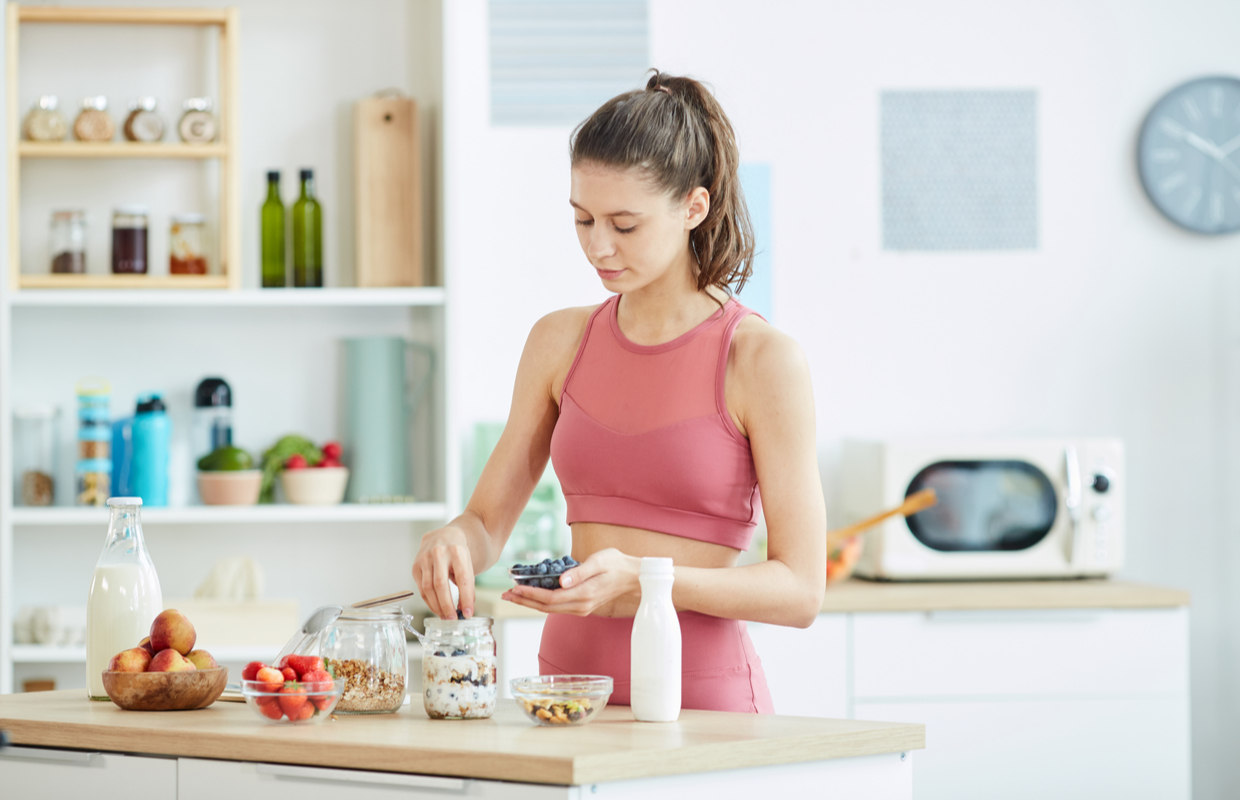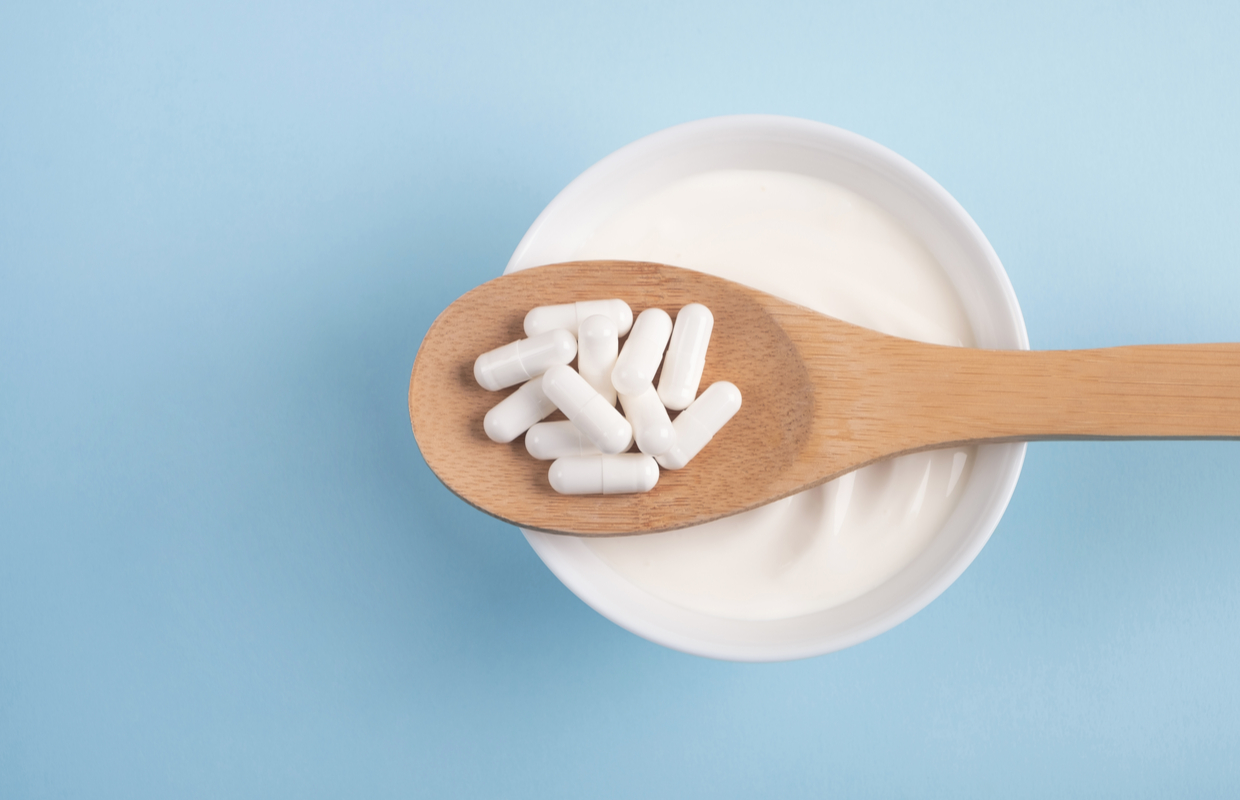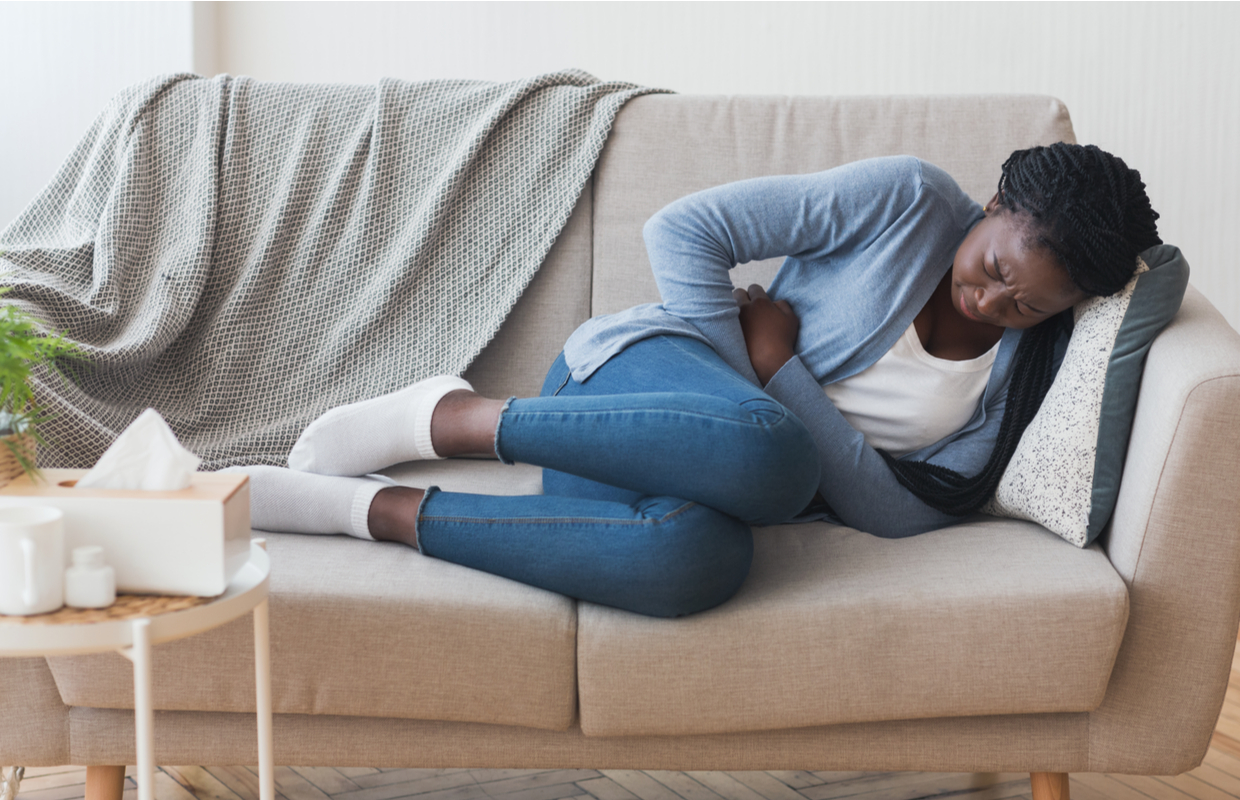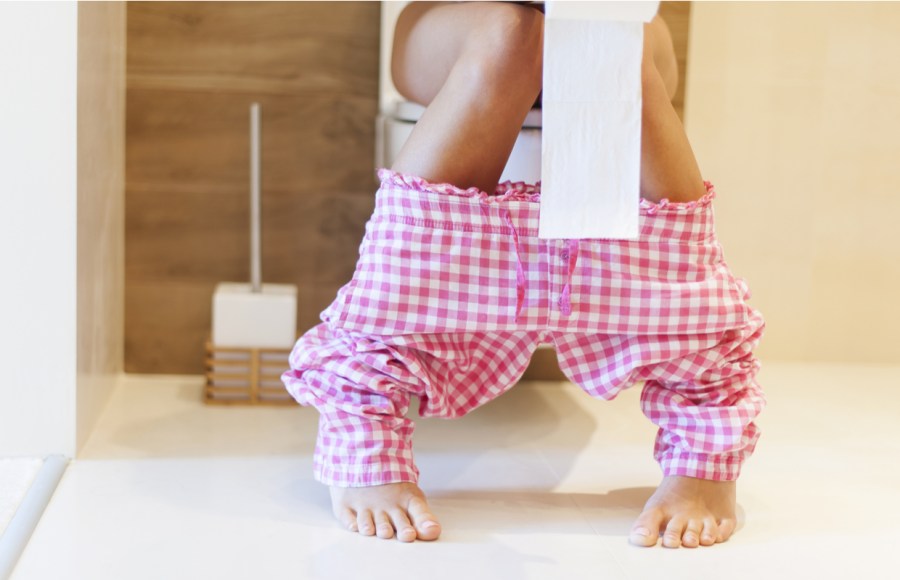If your toilet habits are trying to tell you something, take the hint and give your lower intestines some attention! Here are some top tips on how to improve your bowel health…
Bowels. Many people shy away from talking about them – even though we all have them. This seems even more ridiculous when we consider that most people will experience some issues with their bowels at one point or another during their life. For others, bowel and gut issues are a daily occurrence – for example, around 1 in 100 people have coeliac disease, an autoimmune reaction to gluten.
Wherever you are on the scale, if you’re wondering how to improve your bowel health, you’ve come to the right place. From the best foods to care for your colon to the top toileting tips to help things run smoothly, we’re here to break down some taboos and get talking about all things bowel health…
5 ways to improve your bowel health

Eating breakfast is essential for bowel health: the reflex to poo is usually prompted when you put food in your stomach, but if you don’t do this in the morning, the urge often goes. This can lead to constipation.
1. Don’t skip breakfast
You might think that skipping breakfast will improve your bowel health, as it gives your tummy time to reset and detox. However, according to the experts, choosing to skimp on the most important meal of the day could actually do more harm than good when it comes to your bowels.
‘Going without breakfast means your gastrocolic reflex isn’t triggered at its most alert time,’ says gastroenterologist Peter Whorwell. The reflex to poo is usually prompted when you put food in your stomach, but if you don’t do this in the morning, the urge often goes. This can lead to constipation or IBS.
What if you’re working night shifts or don’t feel hungry first thing in the morning? If you really can’t stomach your breakfast, for whatever reason, then there could be another way to keep things regular. ‘If eating breakfast doesn’t work, try raising your fibre intake to 30g a day,’ recommends nutritionist Angela Dowden. ‘Fibre is the missing link in bowel health for many of us.’
2. Add prebiotics and probiotics to your diet
Your gut health can easily go off balance, making you feel nauseous or bloated. This is especially true if you’ve taken antibiotics. Why? Because antibiotics not only kill off the nasty bacteria from whatever infection you’re fighting off: they also disrupt the army of beneficial bacteria living in your gut. If you’re struggling with your gut health, it’s a good idea to incorporate some probiotics into your diet, like live natural yoghurt, fermented foods, or a probiotic supplement. This will help to replenish and rebalance the levels of beneficial bacteria in your microbiome.
As well as probiotics, it’s also important to add prebiotics to your diet, as these will essentially feed the good bacteria in your gut and keep your bowels ticking over happily. You can find prebiotics in a variety of high fibre foods, like whole grains and green vegetables. Alternatively, there are plenty of prebiotic supplements out there that you could try. Be sure to increase your intake of pre- and probiotics if you are on a course of antibiotics to protect your bowel health.

Prebiotics and probiotics are essential for keeping you gut happy. Try adding some live yoghurt, fermented foods or whole grains to your diet. Alternatively, you could try a supplement.
3. Take your time on the loo
If you strain when you go to the loo, you risk developing piles, or, if it’s a long-term bad habit, prolapse. ‘IBS sufferers strain more because they have a hypersensitive rectum and think there’s more in there,’ says Peter. Try not to be in a hurry when nature calls. Take enough time to answer it properly, and try to relax while on the loo by reading a book or playing some calming music. However, be sure not to sit on the loo for too long. This could also lead to subconscious straining and subsequent piles!
If you struggle with constipation, which often leaves you straining to no avail, try to change up your position when sitting on the toilet. Instead of sitting bolt upright with your feet flat on the floor, prop your feet up on a box or low stool so they are higher than your hips, lean forwards slightly while keeping your spine straight, and place your elbows on your knees. This position allows your rectal muscles to sit in a more natural position, making it easier to ‘go’ without straining.
4. Recognise the signs of bowel health issues
While many people deal with occasional tummy troubles, like constipation, bloating or diarrhoea, it’s important that you are aware of the signs and symptoms that could indicate a more serious issue.
‘Loose stools with blood or mucous could indicate Crohn’s disease, ulcerative colitis – even cancer. These can all be treated if caught early,’ says Peter. ‘Diarrhoea can also be caused by coeliac disease. You can confirm this with a blood test and treat the condition with a gluten-free diet.’
Try monitoring your symptoms, alongside your diet, so you can notice any patterns in your symptoms. If you’re concerned, always speak to your healthcare professional, who may be able to prescribe a treatment or recommend you for further testing.

Some symptoms – like loose stools with blood or mucus in – could be a sign of a more serious bowel health issue. Make an appointment with your healthcare practitioner if you’re concerned.
5. Don’t ignore the urge to go
Delaying going to the loo when the urge hits can cause long-term constipation, a blocked bowel and even faecal leakage. It’s also said toxins can cross the gut barrier into the rest of the body. ‘You could also develop anismus, or obstructed defecation, where instead of relaxing, the anus contracts. It’s like pushing against a closed door,’ says Peter. It can be treated but prevention is better, so make sure to go when you need to!
Many people struggle to go in any toilet that isn’t their own, leading them to hold their bowels for several uncomfortable hours. While everyone has bowels and there really shouldn’t be any embarrassment here, if you do struggle to go while in a public toilet, why not pop a toilet spray into your handbag? These work by trapping any unpleasant odours in the toilet bowl when you go. No one will ever know! We love Poo-Pourri (from £3.99), which is made using natural ingredients and comes in a range of fabulous scents.







